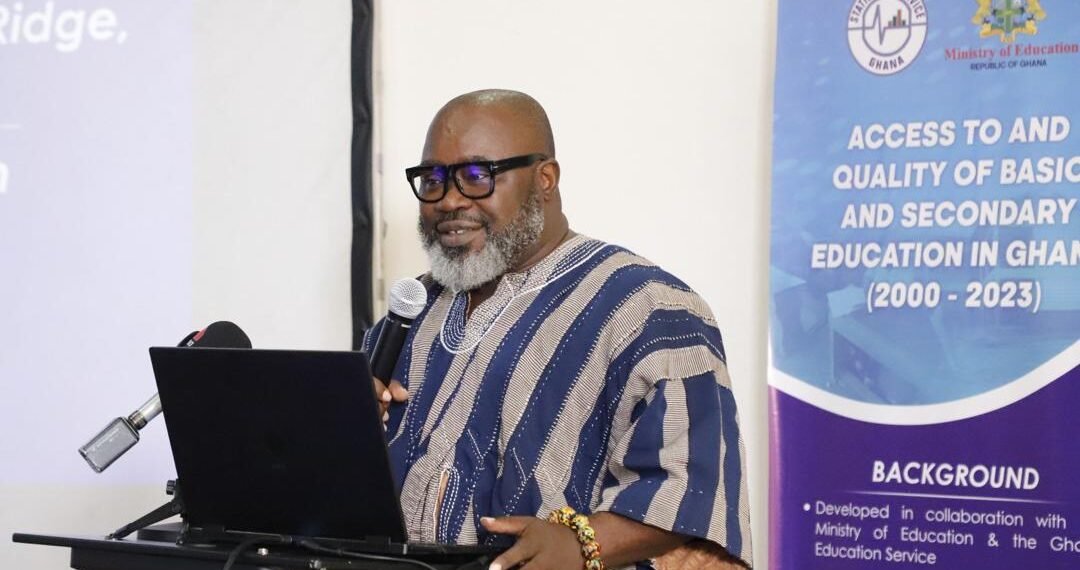The Executive Director of Africa Education Watch (Eduwatch), Kofi Asare, has renewed calls for a fully decentralised payroll system within the Ghana Education Service (GES), citing the devastating impact of payroll bureaucracy on teachers and the frequent recurrence of payroll fraud across the sector.
In a recent public statement, Kofi Asare bemoaned the fact that many newly posted teachers in Ghana continue to work for up to a year without receiving their salaries—a situation he describes as both avoidable and deeply unjust.
At the heart of the crisis, he argues, is Ghana’s rigid, centralised payroll structure, which traps teachers in an endless loop of administrative delays, costing them months—if not years—of unpaid labour.
“For years, Eduwatch, Daniel Domelevo and others have championed a decentralised payroll system, but our calls have gone unheeded.”
Kofi Asare, Executive Director for Africa Education Watch
Drawing comparisons with other countries, he noted that in jurisdictions with decentralised systems, teacher payroll processing typically begins at the school level and ends at the district level.

The entire process, he said, can be completed within days, not weeks or months, asserting that such efficiency is especially necessary in the pre-tertiary education sector, where the GES employs over 300,000 staff, making it the largest employer within Ghana’s public service.
Chronic Bottlenecks
Kofi Asare argued that decentralising payroll in such a large, dispersed workforce would reduce the chronic bottlenecks that deny teachers timely payment while simultaneously improving transparency and accountability.
The latest payroll scandal in the education sector has further vindicated these calls. Just weeks ago, the High Court (Criminal Division) in Tamale convicted six individuals—including officials from the Ghana Education Service and the Controller and Accountant-General’s Department—for their involvement in a payroll fraud scheme that cost the state over GHS86,000 in unearned salaries.
The case, prosecuted under the title The Republic v. Tahidu Yakubu & Five Others, was the outcome of enhanced investigations led by the Office of the Special Prosecutor (OSP).

According to the OSP’s findings, the first accused, Tahidu Yakubu, had officially vacated his teaching position in August 2022.
However, his salary continued to be validated by his Headmaster and the School Improvement Support Officer (SISO)—both of whom were aware that he was no longer at post.
This fraudulent validation lasted from August 2022 to January 2023, during which Yakubu received GHS25,162.66 in gross salary, of which GHS16,416.89 was paid into his personal bank account.
The OSP report also revealed that Yakubu had concurrently taken up another government position at the Microfinance and Small Loans Centre (MASLOC), raising serious questions about how the GES payroll system failed to detect the double employment.
For Kofi Asare and other decentralisation advocates, this case exemplifies the systemic vulnerability of a centralised payroll system. According to him, in a fully decentralised payroll system, “ghost names and payroll fraud become extremely difficult to sustain”.
For him, verification can be completed in a day at the district level because everyone’s presence or absence is easily monitored.

The broader public sector has not been spared from similar payroll irregularities. The National Service Secretariat, for instance, recently came under public scrutiny following revelations of payroll fraud that led to the payment of unearned allowances.
That matter was considered serious enough to warrant presidential sanction for further inquiry and prosecution.
While the Ministry of Finance and the Controller and Accountant-General’s Department have periodically promised payroll reforms, concrete steps toward decentralisation remain elusive.
Critics argue that the bureaucratic and overly centralised nature of the current system not only fosters inefficiency but actively incentivises corruption. “What exactly would Ghana lose if we fully decentralised payroll management?” Kofi Asare asked pointedly.
For him, the answer is clear: decentralisation would reduce fraud, cut delays, improve teacher morale, and foster trust in the public education system. He believes the time for action is long overdue.
READ ALSO: Deputy Finance Minister Pushes for Private Sector-Led Energy Expansion



















